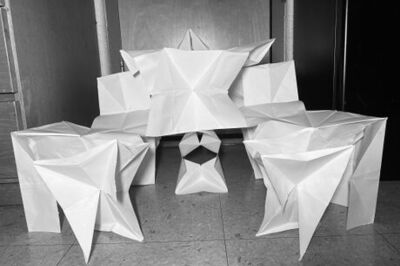
views
A group of over 20 individuals who are involved in a polyamorous relationship are advocating for a change in the traditional nuclear family structure. The group, which calls itself a ‘polycule’, consists of couples and individuals which includes “heteroflexible” men, queer women and nonbinary individuals and are based out of Boston.
“It’s a chosen family … just a little kinkier,” a member of the polycule was quoted as saying by the New York Times. “The structure of the nuclear family needs to shift,” another member added.
“Polycule” is a portmanteau of polyamory and molecule and as per the report by the US newspaper it describes “an intricate structure formed of people with overlapping deep attachments: romantic, sexual, sensual, platonic”.
Another member, named Ashley, compared the group to an “evolving organism”.
The Boston-based polycule formed in 2020 when several couples and singles converged and began “developing friendships” between them. “Our polycule is large, 20 or a little more — people in their mid-20s to mid-40s. A lot of people are married and have primary partnerships. They’re coming to it from the opening of a monogamous relationship,” Katie, a member of the polycule, was quoted as saying.
The members said that the polycule is female-run and queer women make the decisions. “It’s the female-identified people who spearhead. We convene, we plan, we call the shots. It’s a bunch of queer women who say we’re not going to follow the rules. Everyone is so deeply in love with each other, whether or not it’s romantic love,” a member of the free-love commune said.
Despite its benefits, challenges such as jealousy, time constraints, and broken boundaries can arise, particularly for those transitioning from monogamous relationships, the members highlighted. The experience of joining the polycule wasn’t easy for some members, particularly those who had been in monogamous marriages or relationships previously.
Robert, a male who is part of the polycule, said he was devastated when his wife was dating a man he deemed was better than him. “I felt totally lame and inadequate, I felt like I’m a hundred percent replaceable… Lots of tears were shed,” he told the US newspaper. He said joining the polycule ended up helping him.
The group said it organises itself through group chats where members put out their boundaries. The polycule’s diverse structure allows for varying degrees of relationship rules and arrangements while emphasising the importance of respecting each other’s boundaries.
Ann, married to Richard, shared how she balances her time. She maintains a romantic relationship with her husband while also having casual sex with multiple other polycule members.
“My husband, my nesting partner, is the person I own a home with. I also have life-partnership friends, I call them my wives, who are core members in the polycule. One of their husbands is one of my best friends and occasional sexual partner, and I do have sex with my wives, but we’re not romantically involved. But I love them,” Ann was quoted as saying.
Katie asserts that she can effectively manage only three romantic relationships concurrently, a phenomenon referred to in her community as “poly-saturation,” indicating the maximum capacity to love multiple individuals simultaneously. This capacity varies among individuals, other polycule members said.
Nevertheless, despite the challenges encountered, all the members of the polycule told the newspaper that the pros of being in the polycule outweigh the cons.
“We know why monogamy is still the dominant structure. The patriarchy. The lack of rights women had. As a woman, and as a queer woman, being able to live my life as authentically as possible without needing my husband’s permission, that’s empowering,” Bine, another member of the commune, said.
The members also told the newspaper that polyamory becomes ‘a social movement’.

















Comments
0 comment